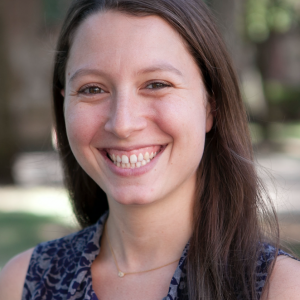Karyn Amira, Ph.D.
karyn.amira@gmail.com
College of Charleston

Address: 114 Wentworth St, Political Science Department
City: Charleston, South Carolina - 29401
Country: United States
About Me:
I am an Assistant Professor of Political Science at the College of Charleston. I love bristket, the Talking Heads, Van Halen and my dog Eddie.
Research Interests
Political Psychology
Political Communication
Political Participation
Public Opinion
Ideology
Partisanship
Media Effects
Voter Turnout
Countries of Interest
United States
My Research:
I got my degree from Stony Brook University where I specialized in political psychology and research methods , specifically lab, survey and field experiments. My research focuses on political identities (particularly ideological identity), affective polarization and candidate perception. I have also dabbled in voter turnout, media effects and Congress in some co-authored papers.
Publications:
Journal Articles:
Are political candidates perceived differently based on the presence or absence of a southern accent? To address this question, we employ an experimental design that explores reactions to political candidates with a southern accent and a regionally neutral accent. We focus on perceptions of three general categories of candidate characteristics: candidate traits, candidate affect, and candidate issue positions. Overall, we discover that candidates with a southern accent are viewed more negatively, and they are thought to hold more conservative policy positions, than candidates with no discernible accent. Our findings suggest that the southern accent provides a heuristic that affects how voters perceive candidates.
In political psychology, positive projection happens when we perceive the positions of liked candidates as closer to our own positions while negative projection means we perceive the positions of disliked candidates as further from our own positions. To date, there is still confusion about whether affective feelings lead to perceptions of candidate positions or perceptions of candidate positions lead to affective feelings. This paper pins down one of these causal directions. I manipulate positive and negative feelings towards a fictitious candidate in a survey experiment to introduce them exogenously and examine whether they affect perceptions of candidate ideology. In line with some previous findings, the results indicate modest positive projection effects but no negative projection effects. Explanations for this asymmetry are discussed.
Over the last year and a half, a number of scholars, pundits, and journalists have criticized college campuses for coddling students by constructing environments that protect them from offensive opinions and evidence that disconfirms their prior attitudes. In this article, I suggest two pedagogical techniques that can help students encounter and digest evidence that may go against their preconceived worldviews and opinions: teaching rational versus irrational thought and quantitative research design and critique. Guiding undergraduates through empirical studies on sensitive topics and encouraging them to critique their findings in a rational, academic manner can help ease them into more reasoned and less reactionary discourse about race, gender, religion, politics, and any other controversial topic in today’s contentious climate. I use my own experience teaching students research design in the months following a race-related murder to illustrate the effectiveness of this method in an extreme circumstance.
Traditional social science research tends to regard political attitudes as the product of individuals’ internal processes. This approach ignores the existence of external influences on individual attitudes, particularly that of social communication. We argue that political attitudes are neither confined to the individual, nor are they wholly social constructions. This study examines how political information is structured and communicated through a social medium. We employ multi-agent simulation to replicate and extend a previous simulation of attitude formation based on Latané’s (American Psychologist 36:343–356, 1981) theory of social impact. Specifically, our extension of the previous model incorporates motivated reasoning processes, attitude persuasiveness, and agent uncertainty in order to more accurately capture the pervasiveness of social communication. These changes allow us to model effects not previously possible, such as attitude polarization and information cascades. Results from this study show that realistic structures in the distributions of attitudes can be recreated using prevailing aggregate- and individual-level models of attitude formation. By formally modeling the dynamics of social impact, researchers gain insight into social influences on individuals’ attitudes and the consequences for public opinion.